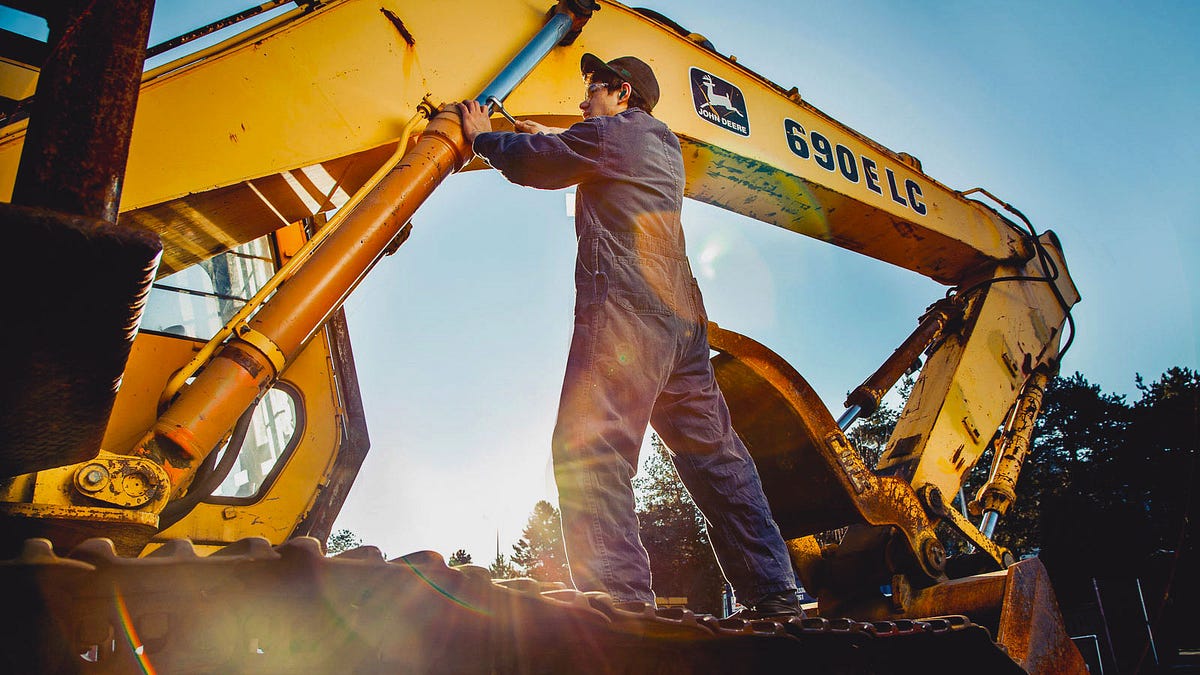Heavy equipment mechanics are the unsung heroes of the construction, mining, and agricultural industries. These professionals ensure that the massive machinery used in these sectors operates efficiently and safely. But what exactly does a heavy equipment mechanic do? Let’s dive into the key responsibilities, skills, and daily tasks that define this crucial role.
Key Responsibilities
- Inspection and Diagnostics: One of the primary duties of a heavy equipment mechanic is to perform routine inspections on machinery. This includes checking for wear and tear, leaks, and other potential issues. Using diagnostic tools and software, mechanics can identify problems before they lead to costly breakdowns. These inspections are crucial for preventing downtime and ensuring the longevity of the equipment.
- Maintenance and Repairs: After diagnosing issues, heavy equipment mechanics are responsible for conducting repairs and performing regular maintenance. This can range from simple tasks like changing oil and filters to more complex jobs like overhauling engines or replacing hydraulic systems. Maintenance also includes cleaning and lubricating parts to reduce friction and wear.
- Equipment Overhauls: Sometimes, heavy equipment requires a complete overhaul to extend its life. This involves disassembling the machinery, replacing worn parts, and reassembling it to factory specifications. Overhauls are labor-intensive and require a deep understanding of the equipment’s mechanics and electronics.
- Installation of New Components: As technology advances, new components or upgrades may become available. Heavy equipment mechanics are responsible for installing these new parts, whether they’re electronic control units, GPS systems, or more efficient engine components. Proper installation ensures the equipment operates at peak performance.
- Field Service: Not all repairs can be done in a shop. Heavy equipment mechanics often travel to job sites to perform emergency repairs or routine maintenance. This requires a mobile service truck equipped with tools, parts, and diagnostic equipment. Field service mechanics must be able to work in various conditions, from construction sites to remote locations.
- Record Keeping: Accurate record-keeping is an essential part of a heavy equipment mechanic’s job. They must document all inspections, repairs, and maintenance activities. These records help track the equipment’s history, schedule future maintenance, and comply with safety regulations.
Daily Tasks and Work Environment
A day in the life of a heavy equipment mechanic can vary widely depending on the industry and the specific job. Here are some typical tasks they might perform:
- Conducting morning inspections of equipment before it goes into operation.
- Performing scheduled maintenance tasks such as oil changes, filter replacements, and lubrication.
- Diagnosing and repairing equipment that has broken down on-site.
- Overhauling engines or hydraulic systems in the shop.
- Installing new components or upgrades to enhance equipment performance.
- Traveling to remote locations to provide field service for heavy machinery.
Heavy equipment mechanics work in a variety of environments, from clean, well-lit workshops to muddy, dusty, or even hazardous job sites. They often work long hours, especially when urgent repairs are needed to minimize downtime on a project.
Conclusion
Heavy equipment mechanics play a vital role in keeping the machinery that powers our industries running smoothly. Their expertise in diagnosing, repairing, and maintaining heavy machinery ensures that projects stay on schedule and within budget. For those with a passion for mechanics and a knack for problem-solving, a career as a heavy equipment mechanic offers a rewarding and essential role in the world of heavy industry.


Leave a Reply